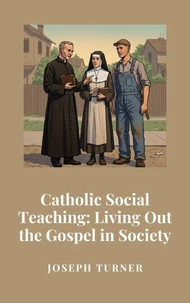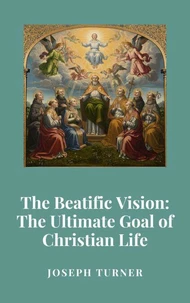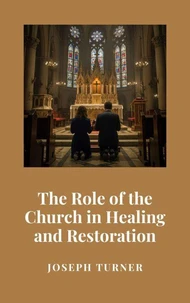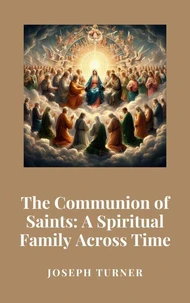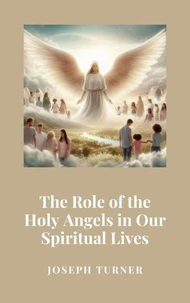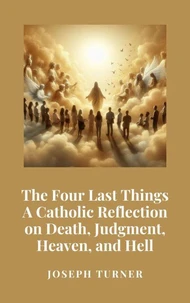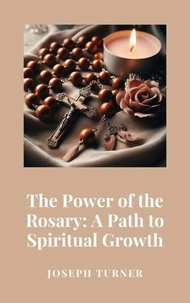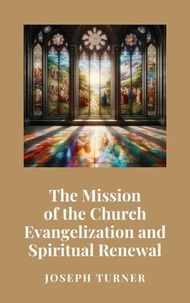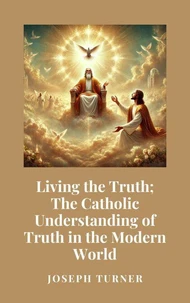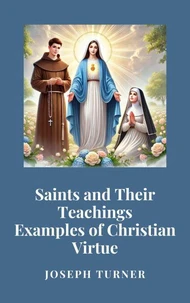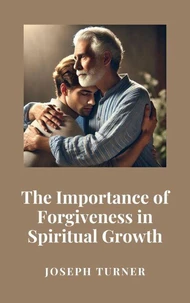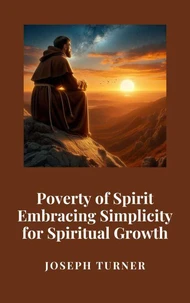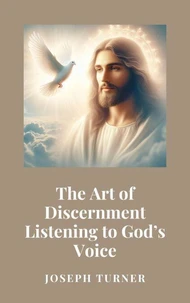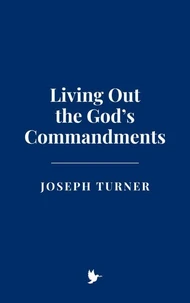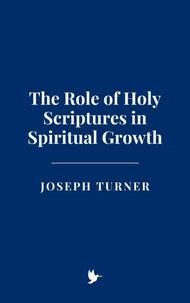The Theology of the Body: Understanding Our Dignity and Vocation
Par :Formats :
Disponible dans votre compte client Decitre ou Furet du Nord dès validation de votre commande. Le format ePub est :
- Compatible avec une lecture sur My Vivlio (smartphone, tablette, ordinateur)
- Compatible avec une lecture sur liseuses Vivlio
- Pour les liseuses autres que Vivlio, vous devez utiliser le logiciel Adobe Digital Edition. Non compatible avec la lecture sur les liseuses Kindle, Remarkable et Sony
 , qui est-ce ?
, qui est-ce ?Notre partenaire de plateforme de lecture numérique où vous retrouverez l'ensemble de vos ebooks gratuitement
Pour en savoir plus sur nos ebooks, consultez notre aide en ligne ici
- FormatePub
- ISBN8230480679
- EAN9798230480679
- Date de parution24/02/2025
- Protection num.pas de protection
- Infos supplémentairesepub
- ÉditeurIndependently Published
Résumé
The Theology of the Body, as articulated most profoundly by Pope John Paul II, presents a radical yet ancient vision of human dignity, sexuality, and vocation in light of the Christian faith. This theological framework proposes that the human body is not merely a vessel for the soul, but a profound expression of divine love, created in God's image and destined to reveal the deepest mysteries of life, love, and eternity.
The seeds of this thought can be traced back to the very origins of Christian theology, woven throughout the Scriptures, echoed by the Church Fathers, and developed by the Doctors of the Church. Pope John Paul II's Theology of the Body, a collection of 129 Wednesday catecheses delivered between 1979 and 1984, transformed the modern understanding of human sexuality and the body within the context of the Catholic faith.
These teachings represent an extended reflection on the creation narrative in Genesis, the redeeming work of Christ, and the theological significance of human bodies as temples of the Holy Spirit. At the core of his message is the belief that the human body, especially in its sexuality, is a visible sign of the invisible reality of God's love and the call to communion. The body is not an object of shame or a mere tool for reproduction, but a sacred medium through which the deep mystery of God's love for humanity is revealed.
The seeds of this thought can be traced back to the very origins of Christian theology, woven throughout the Scriptures, echoed by the Church Fathers, and developed by the Doctors of the Church. Pope John Paul II's Theology of the Body, a collection of 129 Wednesday catecheses delivered between 1979 and 1984, transformed the modern understanding of human sexuality and the body within the context of the Catholic faith.
These teachings represent an extended reflection on the creation narrative in Genesis, the redeeming work of Christ, and the theological significance of human bodies as temples of the Holy Spirit. At the core of his message is the belief that the human body, especially in its sexuality, is a visible sign of the invisible reality of God's love and the call to communion. The body is not an object of shame or a mere tool for reproduction, but a sacred medium through which the deep mystery of God's love for humanity is revealed.
The Theology of the Body, as articulated most profoundly by Pope John Paul II, presents a radical yet ancient vision of human dignity, sexuality, and vocation in light of the Christian faith. This theological framework proposes that the human body is not merely a vessel for the soul, but a profound expression of divine love, created in God's image and destined to reveal the deepest mysteries of life, love, and eternity.
The seeds of this thought can be traced back to the very origins of Christian theology, woven throughout the Scriptures, echoed by the Church Fathers, and developed by the Doctors of the Church. Pope John Paul II's Theology of the Body, a collection of 129 Wednesday catecheses delivered between 1979 and 1984, transformed the modern understanding of human sexuality and the body within the context of the Catholic faith.
These teachings represent an extended reflection on the creation narrative in Genesis, the redeeming work of Christ, and the theological significance of human bodies as temples of the Holy Spirit. At the core of his message is the belief that the human body, especially in its sexuality, is a visible sign of the invisible reality of God's love and the call to communion. The body is not an object of shame or a mere tool for reproduction, but a sacred medium through which the deep mystery of God's love for humanity is revealed.
The seeds of this thought can be traced back to the very origins of Christian theology, woven throughout the Scriptures, echoed by the Church Fathers, and developed by the Doctors of the Church. Pope John Paul II's Theology of the Body, a collection of 129 Wednesday catecheses delivered between 1979 and 1984, transformed the modern understanding of human sexuality and the body within the context of the Catholic faith.
These teachings represent an extended reflection on the creation narrative in Genesis, the redeeming work of Christ, and the theological significance of human bodies as temples of the Holy Spirit. At the core of his message is the belief that the human body, especially in its sexuality, is a visible sign of the invisible reality of God's love and the call to communion. The body is not an object of shame or a mere tool for reproduction, but a sacred medium through which the deep mystery of God's love for humanity is revealed.





